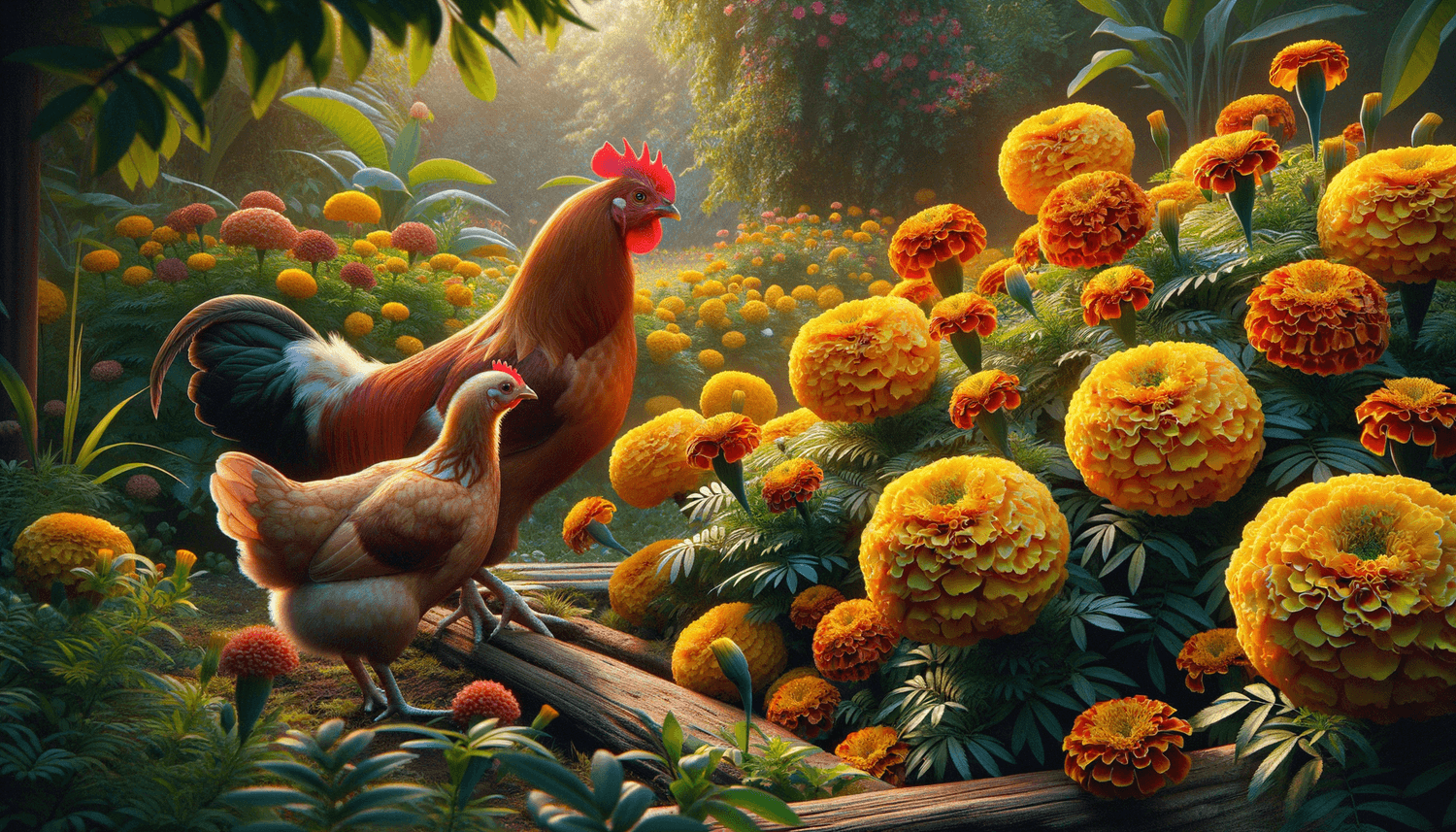Yes, chickens can eat marigold flowers. These flowers are not only safe for chickens to consume, but also offer several nutritional benefits including enhancing the color of egg yolks due to their high content of carotenoids, particularly lutein and zeaxanthin.
Quick Summary
- Chickens can eat marigold flowers.
- Marigolds are safe and provide nutritional benefits to chickens.
- Key benefits include enhanced yolk color and potential antioxidant properties.
- Marigolds should be given as a treat, not as a main dietary component.
Overview of Marigold Flowers
Marigold flowers belong to the Tagetes genus and are known for their bright orange and yellow hues. Notably used for ornamental purposes, these flowers also contain a variety of compounds that can be beneficial when ingested. They provide antioxidants, lutein, and zeaxanthin, making them a healthful addition to a chicken’s diet when consumed in appropriate amounts.
Benefits and Risks of Marigold Flowers for Chickens
Adding marigold flowers to a chicken’s diet could possibly enhance the coloration of egg yolks due to their high carotenoid content. They are also believed to contribute to the overall health of poultry through their antioxidant properties. However, like any treat, they should be given in moderation to avoid nutritional imbalances. While there are minimal risks, an excess of non-nutritive treats can lead to obesity or nutritional deficiencies.
Feeding Guidelines
When feeding marigold flowers to chickens, they should be given sparingly as a supplementary treat and not as a primary food source. Fresh flowers can be provided directly, or dried petals can be mixed sparingly into their feed. Provide no more than a couple of marigold heads per bird each week to ensure a balanced diet is maintained.
Alternatives
If marigold flowers are unavailable or if variety is desired, other safe flower options for chickens include calendula, nasturtium, and roses. These also contain beneficial nutrients, and similar to marigolds, should be offered in moderation.
Expert Opinions
Poultry nutritionists and veterinarians often suggest integrating natural elements such as flowers and greens into a chicken’s diet to provide enrichment and added nutrients. Studies have shown that the inclusion of marigold petals in poultry diets can beneficially affect yolk color and quality. However, experts stress the importance of balance and moderation in the diet of backyard chickens.
Frequently Asked Questions
After learning about the benefits of feeding marigold flowers to chickens, several common questions may arise for chicken keepers aiming to optimize their flock’s health and diet.
How often can I feed my chickens marigold flowers?
Marigold flowers should be fed as a treat rather than a staple in the diet. A couple of marigold heads per bird per week is sufficient and considered safe.
Are there any parts of the marigold plant that chickens shouldn’t eat?
The petals are the most beneficial and safest part of the marigold for chickens to consume. Avoid feeding large quantities of leaves or stems as they are not as digestible and could potentially cause digestive upset.
Can marigold flowers help naturally treat ailments in chickens?
While marigolds are known for their potential health benefits, including antioxidant properties, they are not a replacement for veterinary care. Any ailment should be assessed by a professional, although marigolds can be a complementary treat within an overall healthy diet.

















